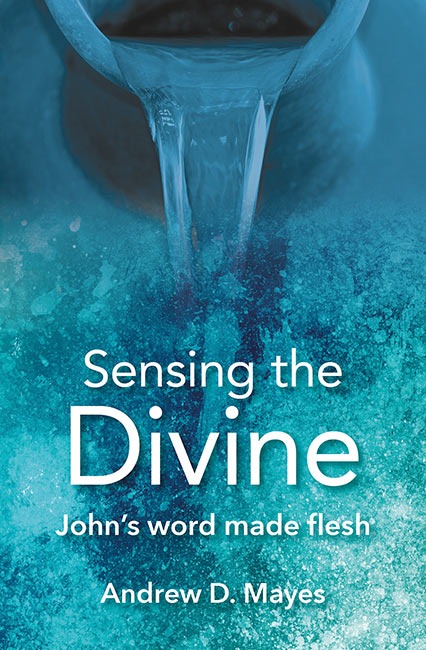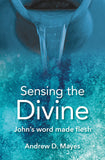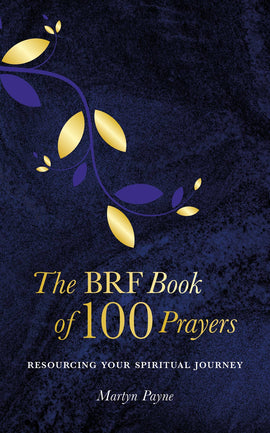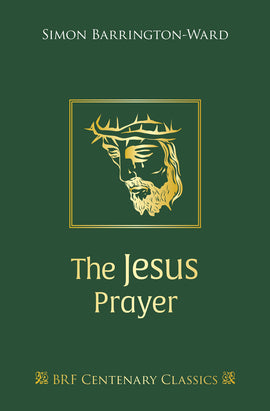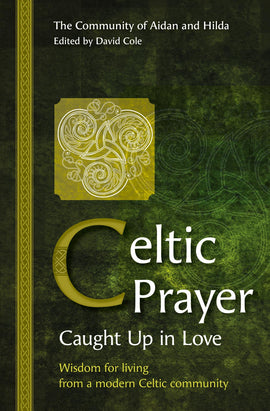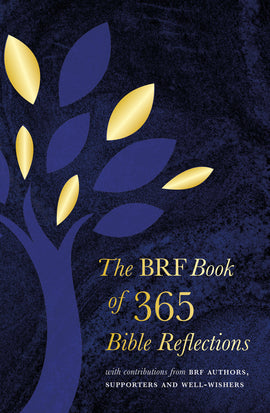Sensing the Divine: John's word made flesh
The fullness of God seen in Jesus Christ
This compelling, inspiring book is an invigorating rereading of the fourth gospel by a well-known spirituality writer who has lived some years in the Holy Land. Uniquely, it approaches John's gospel by exploring how he uses the senses, both physical and spiritual, in his encounter with Jesus Christ, the Word made flesh. This refreshing appreciation of the gospel will activate and stimulate our own discoveries and spiritual quest, not only of the gospel, but also of God's world, ourselves and our mission.
Digital Product - This title is now out of print but is still available digitally. Please click the button below to buy on Kindle or click below to visit our eBooks collection to buy this product for your smartphone and/or tablet. - Go to eBooks
| Title | Sensing the Divine: John's word made flesh |
| Author | Andrew D. Mayes |
| ISBN | |
| Description | This compelling, inspiring book is an invigorating rereading of the fourth gospel by a well-known spirituality writer who has lived some years in the Holy Land. Uniquely, it approaches John's gospel by exploring how he uses the senses, both physical and spiritual, in his encounter with Jesus Christ, the Word made flesh. This refreshing appreciation of the gospel will activate and stimulate our own discoveries and spiritual quest, not only of the gospel, but also of God's world, ourselves and our mission. |
| Details |
|
This compelling, inspiring book is an invigorating rereading of the fourth gospel by a well-known spirituality writer who has lived some years in the Holy Land. Uniquely, it approaches John's gospel by exploring how he uses the senses, both physical and spiritual, in his encounter with Jesus Christ, the Word made flesh. This refreshing appreciation of the gospel will activate and stimulate our own discoveries and spiritual quest, not only of the gospel, but also of God's world, ourselves and our mission.
The Revd Canon Dr Andrew D. Mayes is Priest of St Barnabas, Limassol and the Spirituality Adviser for the Diocese of Cyprus and the Gulf. He is an international speaker and the author of several books on spirituality, including Journey to the Centre of the Soul (BRF, 2017).
The Reader, Winter 2019
This is an ambitious, intriguing and enthusiastic book written by an expert and learned spiritual adviser. Mayes’ aim is to re-interpret the gospel of John and present it as a sensuous and tactile history – an emotional history of Jesus’ ministry that represents a quite radical re-appraisal. For example, strong links between John and the Song of Solomon are drawn out. The author balances each chapter with a parallel commentary on relevant spirituality. He uses a host of ancient (Hebrew), medieval and modern spiritual writings, concentrating especially on Celtic and Ignatian sources in order to promote spiritual reawakening and maturity of Christian practice. In my view the book does not quite succeed. The language is sometimes over-exuberant and, while the gospel analysis is thought-provoking, it is sometimes slightly shallow. The emotional and sensuous aspects of Jesus’ ministry are not exclusive to John, for example, though the book rather ignores this point. Nonetheless, there is much good, original material here, and this is a valuable read for private study or group teaching.
Reviewed by Alice Burdett
Reform July/August 2019. Review by Susan Durber, Minister of Taunton URC, Somerset
Andrew Mayes is Spirituality Advisor for the Anglican Diocese of Cyprus, and brings to his ministry and to this book a deep knowledge of the Middle East, especially the places where Jesus’ ministry took place. If John’s gospel has a reputation for being abstract and conceptual, this book helps any reader to see it as profoundly rooted in the realities of daily life, in a particular place and time. It dwells on time and place, on empirical experiences of taste, touch, sight, sound and smell, and how God is made known in such ways. The book urges us to ‘unfold the sensuous gospel’ and reminds us that this is the gospel in which the Word becomes flesh.
The book moves through the senses, exploring how they emerge in John’s gospel and adding varied and liberal quotations from Christian history on each of the senses too. There is plenty of material here for someone preparing a retreat, or the book could work as a kind of retreat for a lone reader too: it has questions for reflection as well as narrative and biblical study.
The book offers some fascinating insights into the gospel and, for me, these were the most helpful sections. There are so many distinctive things about John’s gospel – the Bethesda story, and miracle at Cana, and the many references to ‘the garden’, among them. It is good to notice how much Jesus goes on pilgrimage in this gospel and to reflect on all that might signify.
Sometimes points were perhaps stretched too far (do 30 references to touching really need a count?) and many quotations and exclamations marks sometimes distract from the distinctive contribution of the author. But this is certainly a useful book for providing a quiet day, or resourcing a church group. The book serves as a helpful inspiration to reflection, preaching and teaching.
Reviewed by Susan Durber, Minister of Taunton URC, Somerset
Review by Canon John Twisleton, June 2019
I’ve been puzzling over John’s Gospel all my life so I approached Andrew Mayes’s new book with hesitancy. I was rewarded by a commentary starting away from the spiritual and theological in space, time and the senses that somewhat disarmed my questioning. Andrew’s experience of the Holy Land coupled to that of the spiritual direction network equips him to approach John’s account of Christ from a novel perspective helpful to those who struggle with the literal. ‘Sensing the Divine’ has the sub-title ‘John’s word made flesh’. It starts with imaginative entry into the apostle John’s putting pen to scroll in Ephesus where ‘the very word ‘flesh’ took on a meaning that was visceral, earthy, full of passion’. It’s a great asset to this book that its author knows the ground John knew as well as ‘the intimacy and ultimacy of Jesus, his transcendence and tenderness’.
John’s symbol is the eagle on account of the perceived sublimity of his Gospel. Augustine saw in it ‘teaching soar(ing) to heights far loftier than those attained by the other three evangelists, and it was his wish to carry our hearts with him on his flight… for John spoke of the divinity of our Lord as no other has ever spoken’. The author has a refreshingly different vantage point. ‘It is the contention of this book that the fourth gospel is rooted in the dust, dirt and beauty of the earth. It brims with sensuality, alerting and activating our senses, both bodily and spiritual… pervaded by a physicality, a materiality, shot through with transcendence, teeming with divine life’. To Mayes Irenaeus rather than Augustine captures the heart of John when he says ‘the glory of God is a human being fully alive’. Jesus Christ, Word made flesh, makes God real to our senses through vulnerability, word and sacrament and helps us into life in all its exuberance (John 10:10).
For John knowledge of God comes from relationship with Jesus Christ which goes beyond the contemporary intellectualism of Plato or Gnostic acquisition of secret ideas allied to despising the body. The book starts by celebrating the gospel of John's emphasis on space and time moving on to how it engages touching, seeing, hearing, tasting, smelling in reawakening life in all its fullness through knowing Jesus (John 17:3). Drawing on Ephrem (d.373) we are called to see Jesus: ‘Let our prayer be a mirror, Lord, placed before your face; then your fair beauty will be imprinted on its luminous surface’. Teresa of Avila is commentator on the listening in ‘subversive silence’ invited by St John. Building from the Cana miracle Mayes invites us with John to taste eternity at the Eucharist with a pithy, evocative summary of this rite at the heart of Christianity. The chapter on smell draws on Johannine scholar Raymond Brown’s observation that the use of myrrh ‘and aloes’ at Christ’s tomb evokes the eroticism of Song of Songs 4:9-16. In the last chapter we are reminded how John’s call to mission has three visceral images of washing one another’s feet, bearing fruit and the breath of the Spirit. The disciples mission ‘is communicated and received in the feel of cold water on sweaty feet, the visualisation of dangling succulent grapes, the experience of breath upon their faces’.
I appreciated the weaving in of concise summaries on different schools of Christian spirituality like Ignatian meditation, Teresa of Avila, Benedictine tradition, lectio divina as well as the questions for reflection and prayer exercises provided after each chapter. ‘Sensing the Divine’ attempts and seems to succeed in earthing John’s gospel in contemporary human reality, for, to repeat one of its Merton quotes: ‘let the reality of what's real sink into you… for through real things we can reach him who is infinitely real’. Why? Because ‘the word was made flesh’ (John 1:14).
Canon John Twisleton 5 June 2019

